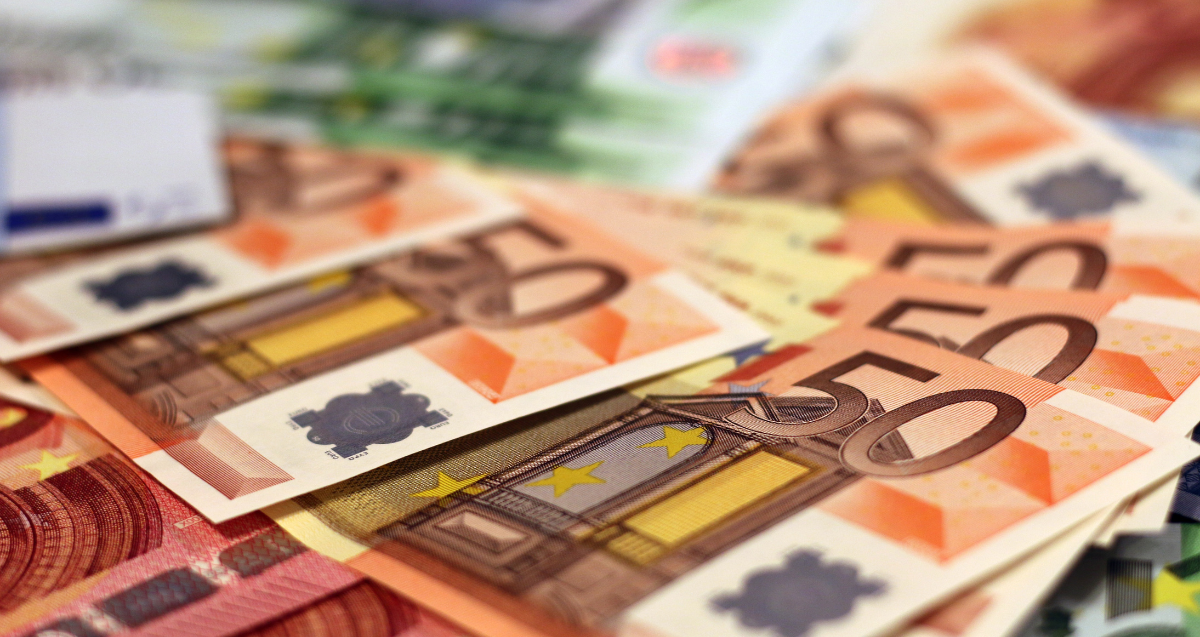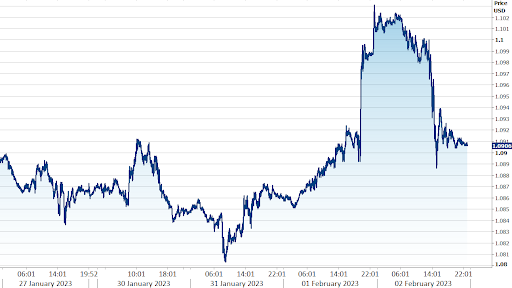ECB February Meeting Reaction: Staying the course
- Go back to blog home
- Latest
The European Central Bank refused to take its foot off the gas at its policy meeting on Thursday, once again raising rates aggressively and signalling that there is still more to do.
This is a strong indication of the bank’s plan for next month and, while President Lagarde later mentioned that this was ‘not a 100% commitment’, it further reinforces our expectation for another half a percentage point move in March. We believe that the likelihood of deviating from this pledge is very low, and Lagarde stated that she ‘cannot think of scenarios, unless they were quite extreme’ where the bank wouldn’t go big again at its next meeting.

With regards to steps beyond next month, Lagarde pushed back on speculation that a March rate increase would be the last, suggesting that this would unlikely herald a pause to the hiking cycle. Importantly, the statement and Lagarde’s press conference maintained an emphasis on data-dependence, an approach that has been a common theme witnessed among all of the ‘Big Three’ central banks this week. On the whole, market participants have perceived this as a dovish stance, rather than a neutral one. We disagree with this view, and believe that the market has got a bit ahead of itself in correcting its medium-term pricing for Euro Area interest rates.
At times, Lagarde sounded flustered during her press conference, although we think that she retained the hawkish tone from her December press conference. Her communications were upbeat with regards to the Euro Area economic outlook. She acknowledged the recent slowdown, yet noted that economic activity had been better-than-expected. She further mentioned that supply bottlenecks were easing and confidence was improving, while pointing to resilience of the services sector. Lagarde also touched on the favourable conditions in the Eurozone’s labour market, which should support private spending.
Elaborating on the topic of inflation, Lagarde acknowledged the recent decline in headline price pressures, although largely shrugged it off, mainly attributing this to the sharp drop in energy prices. According to Lagarde, underlying inflationary pressures are ‘alive and kicking’, which she used as an argument to stress that the bank has ‘more ground to cover’.
Meanwhile, the ECB noted that risks to the Euro Area economy had become ‘more balanced’ with regards to both economic growth and inflation. At the same time, Lagarde emphasised that policymakers do not believe that there is a ‘symmetry of risk’.
How did the euro react to the announcement?
The EUR/USD pair, which had been pressured lower throughout most of the day, accelerated its sell-off following Thursday’s ECB announcement. Lagarde’s press conference effectively wiped-out all of the remaining gains in the pair following Wednesday’s Fed meeting. This sent EUR/USD back towards the $1.09 level, retreating from above the $1.10 mark and its highest level since April.
We think that the reaction of the euro largely has to do with the market perceiving the ECB’s ‘data-dependent’ approach as a dovish turnaround. We believe that investors also perhaps focused on Lagarde’s comments that suggested another 50bp hike in March was not necessarily a done deal. This added an element of unnecessary confusion, rather than sending a clear message to market participants.
Figure 1: EUR/USD (1 week)

Source: Refinitiv Date: 02/02/2023
Following Thursday’s decision, we continue to think that the ECB will raise rates by 50 basis points in March, with additional tightening to continue beyond the first quarter. We believe that a downward shift in the market’s interest rate expectations following Thursday’s meeting is unjustified. We see this as more of a byproduct of the somewhat poor communications from the press conference, rather than an actual dovish shift in ECB messaging. In our view, we should get more clarity from the bank when it next convenes, and releases its updated economic projections, at its March meeting. However, the environment remains highly uncertain and the key to ECB policy and the euro will be future releases of inflation data.

